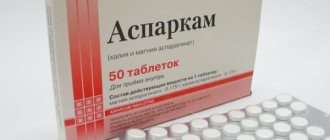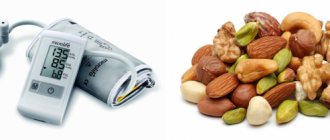Blood pressure indicators are directly related to a man’s sexual abilities. Doctors confirm that more than 40% of patients suffering from high or low blood pressure have problems in the intimate area. Failure to receive timely medical care for hypotension or hypertension can cause acute disruption of cerebral or cardiac circulation during sexual intercourse, as a result of which libido is significantly weakened and a man’s sexual activity is reduced.
How does high blood pressure affect potency?
The nervous and cardiovascular systems are involved in the mechanism of formation and maintenance of a healthy erection. The development of sexual arousal entails increased blood supply to the genital organs and suspension of venous outflow. For sufficient blood flow to the pelvic organs, a mediator is released that helps relax the smooth muscles of the vascular walls in the groin area.
Increased blood pressure reduces the elasticity of the arteries of the penis. As a result, the arterial ducts cannot expand to the sizes necessary for accelerated blood circulation. The blood vessels contract and the process of erection slows down. A man feels the desire to have sexual intercourse, but the penis is partially enlarged or does not acquire a sufficient level of rigidity for penetration into the vagina. If the patient manages to bring the penis into an erect state, then during intimacy he may feel a sharp deterioration in health.
High risk of complications
If a man ignores high blood pressure and continues to stimulate an erection, then the likelihood of developing serious complications increases. Since the onset of sexual arousal and sexual intercourse increases the stress on the body, the patient may suffer from:
- myocardial infarction
- ischemic stroke
- exacerbation of kidney pathologies
- angina attack
- pulmonary edema
- acute heart failure
- encephalopathy
How to avoid a hypertensive crisis
To neutralize the negative impact of hypertension on potency, men are recommended to:
- control the level of physical activity, prevent overexertion and accumulation of fatigue
- give up bad habits, stop smoking and drinking alcohol
- use antihypertensive medications recommended by your doctor
- change your diet, adhere to the principles of a healthy and balanced diet, reduce the amount of unhealthy fats, salt and sugar you consume, introduce more fresh vegetables, herbs and fruits into your diet
The concept of norm. Sexual capabilities of a man
It should be noted that in sexology the quantitative characteristics of the components of “male” strength are not defined. It is impossible to say exactly the “exact” limits of the duration of sexual intercourse, the “normal” limits of the size of the penis and a certain number of copulatory frictions. It is noted that the average duration of one sexual intercourse is 2.5 minutes, and the total number of frictions during coitus is equal to 50-60. However, these are not normal indicators, for some men sexual intercourse lasts 30-40 minutes, reaching 300 or more friction.
Good potency is characterized by the following criteria:
- Strong sex drive and desire.
- Strong and full erection, which contribute to achieving ejaculation and orgasm.
How does low blood pressure affect potency?
A significant decrease in blood pressure causes apathy, weakness and lethargy. As a result of hypotension, blood flow slows and oxygen supply to the brain is disrupted. A man feels dizzy and has a sharp headache, his performance decreases and he loses the desire to have sexual intercourse. In a state of severe hypotension, involuntary urination, seizures and fainting are often observed. Reduced blood pressure does not allow the development of a full erection due to insufficient arterial blood flow to the groin area. The corpora cavernosa of the penis do not receive the required volume of blood and the sexual organ cannot assume an excited state.
Losartan reduces sexual dysfunction in hypertension
There is limited information on the prevalence of sexual dysfunction among patients with hypertension, and there is controversy as to whether their sexual dysfunction is associated with high blood pressure (BP) or the use of antihypertensive drugs. In trials of a new class of antihypertensive drugs, angiotensin II receptor antagonists, their side effect profile was found to differ from placebo [1, 5]. In a study by J. Caro, J. Vidal, J. Vicente et al. [6], the data of which will be presented below, studied the effect of antihypertensive therapy with losartan on sexual function and quality of life in men with hypertension.
Methods
Among 323 patients with uncontrolled hypertension, blood pressure was 140/90 mm Hg. – (197 men, 126 women) who attended the clinics were screened for sexual dysfunction using a special questionnaire (see below). 82 of 197 men (42.3%) were diagnosed with sexual dysfunction. 82 patients without sexual dysfunction formed a parallel control group.
The study included 164 men aged 30 to 65 years with essential hypertension (blood pressure 140/90 mmHg for at least 6 months or receiving antihypertensive therapy). Exclusion criteria were:
• secondary or malignant form of hypertension;
• systolic blood pressure 179 mm Hg. or diastolic blood pressure 109 mm Hg;
• treatment with two or more antihypertensive drugs, psychotropic drugs or any other drugs affecting the sexual sphere;
• history of severe sexual dysfunction, drug addiction, alcoholism or allergy to losartan;
• severe concomitant diseases (diabetes mellitus, mental illness, severe organ pathology, etc.).
The study included 5 visits (weeks 0, 4, 8, 12 and 13). After a 7-day onboarding period (15 days for those taking b-blockers), during which patients received placebo, and filling out a questionnaire, patients were prescribed losartan at a dose of 50 mg/day. If adequate blood pressure control was not achieved within 4 weeks, the dose of losartan was titrated to 100 mg/day.
A questionnaire was conducted before and after completion of treatment.
The survey was anonymous, and incompletely completed questionnaires were excluded from the analysis. The validity and reproducibility of this questionnaire have been demonstrated in a previous study [7]. Treatment results were analyzed based on answers to 5 key out of 14 questions. The questions covered socio-demographic characteristics (age, gender, marital status and educational level), medical history (duration of hypertension, cardiovascular pathology). Key questions related to sexual dysfunction: decreased libido, erectile dysfunction (impotence), delayed or absent orgasm/ejaculation, decreased overall level of sexual satisfaction. The diagnosis of sexual dysfunction was made if the answer to any of 5 key questions was positive. Frequency of sexual intercourse was assessed as follows: high (at least once a week), medium (every 15 days), low (once a month), and very low (less than once a month). Results
The characteristics of patients in the main (with sexual dysfunction) and control (without sexual dysfunction) groups are presented in Table. 1. The groups were comparable in age, marital status, educational level and duration of antihypertensive treatment. The mean levels of systolic and diastolic blood pressure at the beginning of the study did not differ in patients with or without sexual dysfunction: 153 ± 12/89 ± 8 mm Hg. and 155±13/89±8 mmHg, respectively (P > 0.05).
The characteristics of patients in the main (with sexual dysfunction) and control (without sexual dysfunction) groups are presented in Table. 1. The groups were comparable in age, marital status, educational level and duration of antihypertensive treatment. The mean levels of systolic and diastolic blood pressure at the beginning of the study did not differ in patients with or without sexual dysfunction: 153 ± 12/89 ± 8 mm Hg. and 155±13/89±8 mmHg, respectively (P > 0.05).
Before the start of the study, 49% of 164 patients were receiving angiotensin-converting enzyme (ACE) inhibitors, 10% were receiving diuretics, 13% were receiving α-blockers or β-blockers, and the remaining 17% were receiving calcium channel blockers. No one received combination antihypertensive therapy. In table Figure 2 shows the initial drug therapy in the main (in the presence of sexual dysfunction) and control groups. After 12 weeks of treatment, the reduction in blood pressure was similar in the group with sexual dysfunction (to a level of 139±7/83±5 mmHg) and in the control group (141±10/81±6 mmHg), P > 0.05. Control of systolic blood pressure (Ј140 mm Hg) was achieved in 46% of 82 patients with sexual dysfunction, and control of diastolic blood pressure (Ј90 mm Hg) – in 85%. In the group without sexual dysfunction, target levels of systolic and diastolic blood pressure were achieved in 46% and 94% of patients, respectively. Titration of the dose of losartan to 100 mg per day was required in 78% of patients in the group with sexual dysfunction and 75% in the group without sexual dysfunction to achieve the BP target (P > 0.05).
Of the 82 patients with sexual dysfunction, 70 (86.4%) attributed sexual dysfunction to the use of antihypertensive drugs. Age, educational level, systolic and diastolic blood pressure, class of antihypertensive drug used, and duration of antihypertensive therapy were not correlated with sexual dysfunction (P > 0.05).
Angiotensin II antagonist therapy was associated with a significant increase in overall sexual satisfaction. After 12 weeks of treatment with losartan, the rate of sexual satisfaction in patients with sexual dysfunction increased from 7.3% to 58.1% (P < 0.001). The proportion of patients with a high frequency of sexual activity increased from 40.5% to 62.3%, while the number of patients with low or very low sexual activity decreased significantly (P = 0.001).
Erectile dysfunction was observed in 75.3% of patients before treatment. After 12 weeks of treatment with losartan, it occurred in 11.8% of patients. Improvement in other indicators of sexual function (libido, ejaculation, orgasm) occurred in 24.7% of cases. The dynamics of sexual function did not depend on age, education, marital status, blood pressure level and duration of antihypertensive therapy. The quality of life after changing the medication improved in 73.7% of men, in 25.5% it remained unchanged, and in only 0.8% it worsened.
In the control group (without sexual dysfunction), the administration of losartan did not lead to changes in erectile function, sexual satisfaction, sexual activity and quality of life (P > 0.05).
Discussion
A man's sexual activity reflects a dynamic balance between excitatory and inhibitory forces. Any disturbances in the system of peripheral and central mechanisms regulating erection have a clear effect on sexual function. Both high blood pressure and antihypertensive treatment can lead to sexual dysfunction [2]. Data obtained in the study by J. Caro, J. Vidal, J. Vicente et al. [6], indicate that the frequency of sexual disorders associated with the use of antihypertensive drugs reaches 86.4%. The study showed a significant increase in sexual satisfaction and a decrease in erectile dysfunction when treated with losartan. Treatment with losartan effectively controls blood pressure and is well tolerated [8]. Since sexual dysfunction is multifactorial in origin, patients with chronic diseases and those taking anxiolytics, steroids and antidepressants were excluded from the study. A study by J. Caro, J. Vidal, J. Vicente et al. demonstrated for the first time an improvement in sexual activity and satisfaction with a relatively short course of treatment with an angiotensin II receptor antagonist.
The findings of this study strengthen the idea that impotence may be a component of metabolic syndrome as well as a consequence of antihypertensive therapy. Erectile dysfunction in hypertension may be an early indicator of the development of vascular pathology or an imbalance in the regulation of vascular function. There is no consensus yet on the prevalence of erectile dysfunction among untreated patients with hypertension. It occurred in 10–19.3% of cases, varying between studies [9,10], which may be due to different methods of its assessment, concomitant therapy, age and socio-economic characteristics of patients.
Although it is generally accepted that erectile dysfunction is associated primarily with diuretics and b-blockers, the study discussed did not find an association of erectile dysfunction with the class of antihypertensive drug used. This may be due to the small sample size. Vascular pathology may be an unrecognized cause of impotence in hypertensive patients. Angiotensin II modulates erectile activity by regulating penile vascular tone or modulating neurogenic signals from the spinal cord or brain [11]. Improvement in erectile function during treatment with losartan confirms the involvement of angiotensin II in the pathogenesis of this disorder and opens a new field for research into the mechanisms of sexual dysfunction in hypertension.
There is not yet sufficient information about the effect of antihypertensive therapy on sexual satisfaction and activity. Most of the subjects associated erectile dysfunction with the initiation of antihypertensive therapy. However, it cannot be proven that this side effect is caused by the treatment until a double-blind study is performed. Losartan had a beneficial effect on both sexual satisfaction and sexual activity (frequency). This improvement may be partly due to the good tolerability of angiotensin II receptor antagonists and the absence of significant adverse effects [8]. On the other hand, increased sexual satisfaction may be due to the effect of losartan on the central nervous system (losartan penetrates the blood-brain barrier and can improve cognitive function) [12].
Given the negative impact of conventional antihypertensive therapy on erectile function, it cannot be excluded that its improvement with the use of losartan is associated with the very favorable profile of this class of antihypertensive drugs compared with previously used drugs. Indeed, diuretics and b-blockers (drugs that most often cause sexual dysfunction in hypertensive patients) [13] were used by 29% of patients before the start of the study. In a study by J. Caro, J. Vidal, J. Vicente et al. the incidence of erectile dysfunction did not depend on the class of antihypertensive drug. It is important to note that the idea that ACE inhibitors and calcium blockers have a lesser effect on sexual function [3,4] remains controversial: these data have not been confirmed in other studies [14]. In addition, in the TOMHS study, the incidence of sexual dysfunction after 24 and 48 months of therapy did not differ among those receiving acebutolol, amlodipine, chlorthalidone, doxazosin and enalapril [10].
It was assumed that erectile dysfunction may be directly related to a decrease in blood pressure. The reduction in blood pressure was comparable in the study and control groups, while improvement in erectile function occurred only in the losartan group. These data indicate that a decrease in blood pressure is not the cause of sexual dysfunction in hypertensive patients.
So, sexual dysfunction is a common symptom of hypertension.
Treatment with losartan improves erectile function, sexual satisfaction and sexual activity. One of the main factors that reduce patient adherence to treatment is the side effects of drugs, and losartan is an effective alternative to previously used antihypertensive drugs that can improve sexual function and quality of life. Since the study by J. Caro, J. Vidal, J. Vicente et al. was performed on a non-random sample, its results should be extrapolated to the entire population with caution, and the problem of sexual dysfunction in hypertensive patients needs further study. Literature:
1. Williams GH Assessing patient wellness: new perspectives on quality of life and compliance.// Am J Hypertens, 1998; 11: 186–91.
2. Croog SH, Levine S., Sudilovsky A., et al. Sexual symptoms in hypertensive patients. A clinical trial of antihypertensive medications.// Arch Intern Med, 1988;148: 788–94.
3. Rosen RC, Kostis JB, Jekelis A, et al. Sexual sequelae of antihypertensive drug treatment effects on self-report and physiological measures in middle-aged male hypertensives.// Arch Sex Behav, 1994; 23: 135–52.
4. Kroner BA, Mulligan T., Briggs GC Effect of frequently prescribed cardiovascular medications on sexual function: a pilot study. // Ann Pharmacother, 1993; 27: 1329–32.
5. Conlin PR, Spence JD, Williams B, et al. Angiotensin II antagonists for hypertension: Are there differences in efficacy?// Am J Hypertens, 2000;13: 418–26.
6. Caro J., Vidal J., Vicente J. et al. Sexual dysfunction in hypertensive patients treated with losartan. // J Med Sci, 2001; 321:336–41.
7. Benett AE, Ritchie K. Questionnaires in medicine: a guide to their design and use. New York: Oxford University Press, 1975.
8. Moore MA, Edelman JM, Gazdick LP, et al. Choice of initial antihypertensive medication may influence the extent to which patients stay on therapy: a community–based study of the tolerance and effectiveness of a losartan–based regimen versus usual care. // High Blood Pressure, 1998; 7: 156–7.
9. Oaks W., Moyer JH Sex and hypertension.// Med Aspects Hum Sex, 1972; 6:128.
10. Grimm RH, Grandits GA, Prineas RJ, et al. Long–term effects on sexual function of five antihypertensive drugs and nutritional hygenic treatment in hypertensive men and women: treatment of mild hypertension study (TOMHS).// Hypertension, 1997; 29:8–14.
11. Kifor I., Williams GH, Vickers MA, et al. Tissue angiotensin II as a modulator of erectile function. I. Angiotensin peptide content, secretion and effects in the corpus cavernosum.// J Urol, 1997; 157:1920–5.
12. Tedesco MA, Ratti G., Mennella S., et al. Comparison of losartan and hydrochlorothiazide on cognitive function and quality of life in hypertensive patients.// Am J Hypertens, 1999; 12: 1130–4.
13. Rosen RC, Kostis JB, Jekelis AW Beta–blocker effects on sexual function in normal males.// Arch Sex Behav, 1988; 17: 241–55.
14. Steiner SS, Friedhoff AJ, Wilson BL, et al. Antihypertensive therapy and quality of life: a comparison of atenolol, captopril, enalapril and propranolol.// J Hum Hypertens, 1990; 4: 217–25.
The material was prepared by Ph.D. A.N. Nikolaev
Losartan – Cozaar (trade name)
(Merck Sharp & Dohme Idea)
Losartan –









